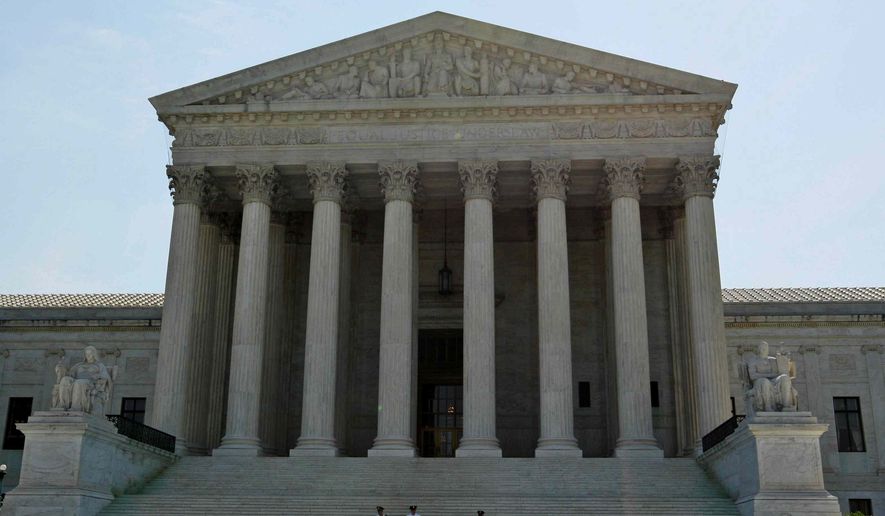A top White House official acknowledged Thursday that the legal battle over President Obama’s executive actions on immigration could ultimately end up before the U.S. Supreme Court and said winning on the merits of the president’s actions is how the administration plans to provide certainty going forward for those affected by the program.
The Justice Department said Wednesday it would not petition the high court to stay a ruling this week from a federal appeals court upholding an earlier injunction blocking Mr. Obama’s deportation amnesty, announced in November 2014, to shield millions of additional illegal immigrants from the threat of deportation. The department said it is instead focused on defending the merits of the president’s actions at a hearing in early July.
“We think that the case that we’re arguing in July may ultimately get to the Supreme Court — the challenge is that if we were to appeal this stay, the decision that happened this week, one way or the other, whether the government won or lost, we would still have this other argument to make, and people would not have the certainty that they need in order to benefit from this program,” Cecilia Muñoz, director of the Domestic Policy Council, said on MSNBC’s “The Rundown with José Díaz-Balart.”
“So this is about making sure we are fighting vigorously, winning this case on the merits so that when the time comes that we’re implementing this program, people can be sure that it’s not [going to] get further entangled in litigation,” she said.
In a 2-1 ruling, the 5th U.S. Circuit Court of Appeals said this week the dangers of letting the program go into effect and then having to stop it were too great. District Judge Andrew S. Hanen had previously halted the program in February, just days before it was to go into effect.
“The president is very confident that his actions are well within his authority under the law, and also that they’re the right thing for the country as well as for the people who are affected by this,” Ms. Muñoz said. “His focus on this legal strategy is to make sure that he does everything possible to make sure that we get to a place where we can implement this policy and provide the people who would be coming forward with the certainty that they will know that this policy will stick.”
Ms. Muñoz said there will not be an appeal to the Supreme Court on this week’s ruling because “it’s very important to provide certainty, that if people are going to be coming forward to apply for something, they’re [going to] need to know that’s it’s not [going to] get tangled up in the courts.”
But if the case does ultimately end up before the Supreme Court, it’s possible that it will have already wound through a complex, lengthy legal battle that could spill over into the 2016 presidential campaign.
Texas and 25 other states are suing over Mr. Obama’s Deferred Action Parental Accountability Program (DAPA), announced in November 2014. The courts have halted that program but left in place an earlier 2012 program known as Deferred Action for Childhood Arrivals (DACA), which applies to young illegal immigrants known as Dreamers who were brought to the country as children.
“So that’s really the theory undergirding the legal strategy that the Justice Department announced yesterday,” Ms. Muñoz said. “The president’s [going to] continue to fight for this vigorously because it’s the right thing for the country, because it’s absolutely within his authority under the law, and it’s also the right thing for keeping families together and upholding our values in this country.”
• David Sherfinski can be reached at dsherfinski@washingtontimes.com.




Please read our comment policy before commenting.